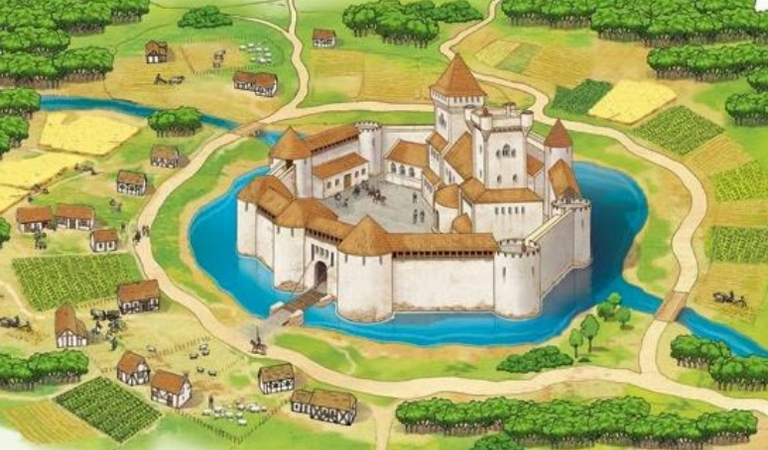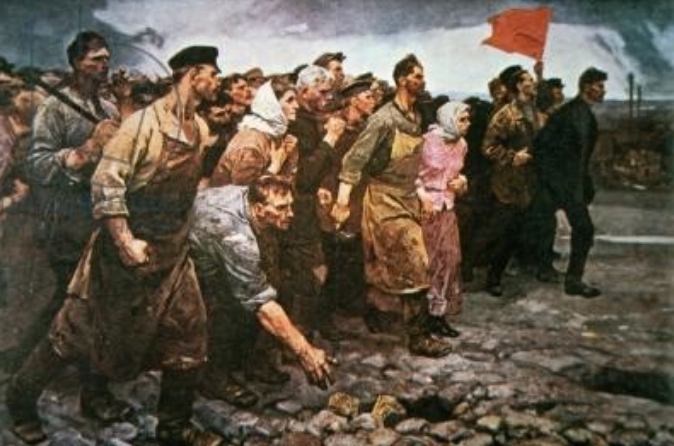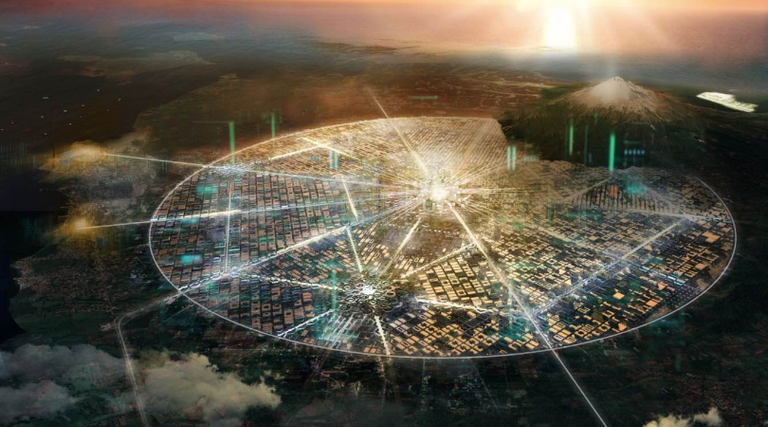We have grown up in the 20th and 21st centuries, often taking for granted the systems that keep our economic engines churning and our rights protected. Thanks to the ingenuity and sacrifices of our ancestors, we were born into this civilized world, and all of its conveniences.
From the Middle Ages to the 20th century, we have witnessed (often violent) revolutions that led to the emergence of the modern court system, representative democracy, capitalism, socialism, and industrialization - all of which are the building blocks of the society we operate in today.

While sometimes controversial, ambitious men like Adam Smith, Thomas Jefferson, and Henry Ford were all working within the confines of the systems and ideas that were passed down to them in their time, attempting to further advance society based on the efforts of their own thinking.
We live in a much different world now compared to our predecessors. Many of us have grown up in a safe environment with abundant food, conditioned by Disney shows and Hollywood movies, playing video games and tapping our smartphones. Could it be that we have been domesticated to the point where we lack the will to stand up and fight?
Perhaps instead of attacking the upper class with pitchforks, or battling an enemy force in the trenches of Europe, we are better suited to fight the next revolution online.
The Bitcoin Building Block
It cannot be denied that our lives have become increasingly digital over the past few decades, and that power is shifting from the physical world into the virtual world. These days, public opinion is swayed heavily by those who control social media platforms, and govern the modern capital markets.
In today's world, how can we defend ourselves from covert oppression and continue to evolve? Thankfully our current generation has been blessed with a new technology, one that restores the court system, democracy and money to the people. Intentional or not, Satoshi Nakamoto started this revolution by introducing a new form of money called Bitcoin.
Code is Law
The court system we inherited can now be implemented in digital form, using smart contracts on platforms like Ethereum. Issues like fraud, contract violations, and escrow problems can be resolved automatically using this new system whereby "code is law".
Imagine, if you will, that eventually all private property ends up as NFTs on public blockchains. In such a world, lawyers, notaries, and bank employees would be freed from the painstaking process of verifying the transfer of assets between individuals.

Democracy
In recent years we are particularly concerned about the potential for voting fraud in our elections. Election manipulation would be a thing of the past if we transitioned our voting systems to censorship-resistant blockchains.
In fact, we just saw Guatemala record their 2023 national vote permanently to the Bitcoin blockchain. Meanwhile, voting is taking place daily on other governance-enable blockchain platforms to approve spending proposals and protocol changes.
Money
Throughout history, the power of money has always been consolidated into the hands of the few, giving them incredible influence over the lives of the masses. Bitcoin enables individual financial freedom, making it much harder for the elite to subjugate the populace.
Anybody, anywhere in the world with a computer and an Internet connection can participate in the new economy enabled by blockchain technology. Moreover, the open-source code behind Bitcoin has restored the power to create money back into the hands of the people.
According to Darwinian principles, the brightest minds in the world will compete to produce the best decentralized money. Once this has been accomplished, all we have to do is protect these systems from the unscrupulous, who would seek to subvert them.
The Transition Period
Throughout human history, we have had to place trust in institutions, whether they be exchanges, banks, or governments. Now we can transact with one another in a trustless way via censorship-resistant blockchains. Much of the population is still unaware that we are currently in the midst of a modern financial and economic revolution, and will need time to adapt.
Of course, crypto is not going to replace the existing banking system overnight, as the masses have been conditioned to depend on it. That said, we are already 15 years into this financial experiment, and all signs are pointing to further growth and adoption. As the older generations move on, their successors will have more freedom to integrate this new technology deeper into society.

Our Evolution Continues
Ultimately, God wants us to evolve and strengthen, rather than remain stagnant, complacent, and dependent on the state. Similar to the wild animals of Africa or the Amazon Jungle, we must fight for our survival and continual progression. By constantly pushing forward, we pay homage to our ancestors who made our current civilization possible.
There is still plenty of evolution ahead as we battle to integrate this new technology into our societies. New projects will emerge to compete with existing ones, and sometimes hard forks will be necessary to resolve conflicts. Strap in tight, as we lay the foundation for a new digital economy that future generations will inherit.
Until next time...
If you found this article interesting, be sure to check out my other posts on crypto and finance here on the HIVE blockchain. You can also follow me on InLeo for more frequent updates.
Resources
Middle Ages Image [1]
Proletariat Image [2]
Concept of Bitcoin City, El Salvador Image [3]
Posted Using InLeo Alpha
Maybe the progress of the past few centuries has actually been regress? I would argue that in many ways, for the average person, life was better under the old monarchies than it is under democracy. Maybe crypto can help us get back to a more natural and honest system and away from the sickness of democracy.
Yes, it's another perspective that has merit. I think we would need to look deeper into how democracy has been altered over the past 100 years. Most people just want to be looked after by a benevolent dictator.
In general though, I would argue that we've progressed rather than regressed over the past few hundred years. I don't think America would have grown into the nation it became without the fundamental ideas of capitalism, democracy, and courts.